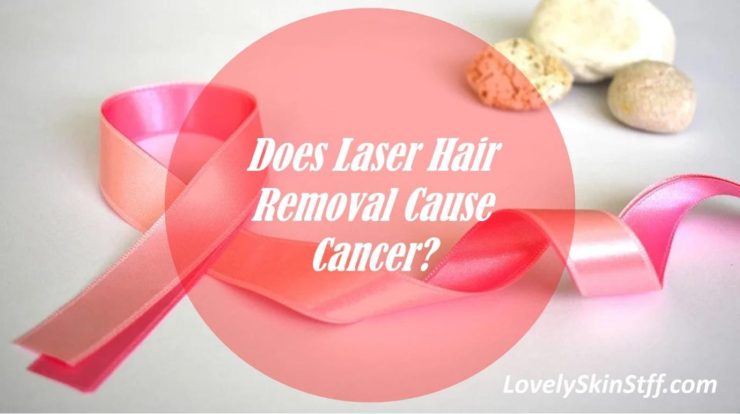Table Of Content

However, in most cases, these hairs fall out on their own, so you may not need any medical treatments if you wait until after your pregnancy has ended. According to the Cleveland Clinic, these IPL and other devices do work to remove unwanted hair, but it often takes many sessions, and the results are rarely permanent. IPL devices are generally safe, and they have been approved by the FDA for hair removal. Ibrahimi adds that if you remove the spot's pigment, it might make the cancer too hard to see until it's too late. Luckily for O'Connell, she declined the laser treatment and showed the spot to her dermatologist who ultimately performed surgery to remove it. Based on the current evidence, laser hair removal does not cause cancer.
Excessive Hair Growth in the Treated Area
Following laser hair removal, it is common to experience temporary irritation and mild redness in the treated area. Laser hair removal employs high-heat lasers to target hair follicles, which can lead to temporary side effects. The cost of laser hair removal depends on the area of the body being treated and the number of treatments needed. There's no evidence to suggest that laser hair removal causes skin cancer. This light source heats and destroys hair follicles in the skin, which disrupts hair growth.
Laser hair removal treatments can put you at an increased cancer risk - Hindustan Times
Laser hair removal treatments can put you at an increased cancer risk.
Posted: Mon, 18 Jul 2016 07:00:00 GMT [source]
Find more top doctors on
But there are no large studies comparing how effective these devices are compared with laser hair removal done at a doctor's office. Laser hair removal is a medical procedure that uses a concentrated beam of light (laser) to remove unwanted hair. Mellemkjaer and Lindelof together concluded that burn injuries did not increase the likelihood of developing malignant forms of skin cancer.
Potential Risks for Certain Types of Skin and Hair
While this technique has gained popularity for its efficacy, questions often arise about its safety. People are curious whether the ongoing use of this technology poses any adverse effect on the skin, leading to a broader discussion about its long-term implications. In conclusion, scientific evidence does not support the claim that laser hair removal causes cancer. When performed by trained professionals using appropriate protocols, laser hair removal is a safe and effective cosmetic procedure for achieving long-term hair reduction. Some side effects of laser hair removal include mild redness and swelling and more rarely, burning or scarring of the skin. It's important to choose a board-certified medical professional skilled in laser use to perform the treatment to reduce your risk of skin damage or injury.
Does Laser Hair Removal Ruin Tattoos (+3 key Tips For Better & Safe Results)

Some people may need maintenance treatments once every six to 12 months to treat small, fine hairs that return. In advance of your procedure, avoid plucking or waxing for six weeks. If you are having hair removed from an area you frequently shave, leave a bit of stubble before the procedure, which will provide enough target for the laser without absorbing too much energy in the hair shaft. During your consultation, the provider will ask about your medical history and which areas you want treated. They may also take photographs of the areas you want treated and evaluate whether you have any pre-existing health or hormonal conditions or other risk factors.
Study points to cancer risk from laser hair removal - CosmeticsDesign-Europe.com
Study points to cancer risk from laser hair removal.
Posted: Tue, 19 Jul 2016 07:00:00 GMT [source]
Non-surgical cosmetic procedures
In this article, we will explore whether there are any specific factors or conditions that may increase the risk of skin cancer after undergoing laser hair removal. In addition to these scientific studies, it is also important to consider the experiences and testimonials of individuals who have undergone laser hair removal. Many people have safely undergone this procedure without experiencing any adverse effects such as skin cancer. It is crucial to consider the millions of successful treatments performed worldwide, and the overwhelmingly positive outcomes reported by patients. If you have a darker skin tone or lighter hair color, it is important to discuss the potential risks and limitations of laser hair removal with your provider prior to undergoing the procedure.
International Patients
Avoid sun exposure before and after treatment to reduce the risk of pigmentation changes. Breast cancer is a complex disease with numerous risk factors, including genetics, hormonal influences, lifestyle factors, and family history. While maintaining overall health and well-being is important for reducing the risk of cancer, there is no established link between laser hair removal in the underarm area and the development of breast cancer.
Does Laser Hair Removal Cause Cancer in the Skin
In the weeks leading up to your procedure, avoid tanning beds and stay out of the sun as much as possible. Naturally or artificially tanned skin can make laser hair removal less effective and lead to side effects. Meet Dr. Palak Agarwal, a distinguished dermatopathologist and cosmetologist renowned for her excellence in skincare.
Temporary Side Effects
There is no evidence to suggest that laser hair removal causes breast cancer or any other type of cancer. When ionizing radiation passes through the body it can cause direct damage to a cell’s DNA and potentially lead to cancer later on. It may also not be suitable for everyone, including pregnant women and people with certain skin types.
While some minimal DNA damage may occur, it is easily repaired by the body's natural mechanisms. The overall risk of developing skin cancer as a result of laser hair removal is extremely low and is considered negligible compared to other common causes of skin cancer. In conclusion, the available scientific evidence and research suggest that there is no significant link between laser hair removal and skin cancer.

They administered CO2 laser resurfacing on both patients, completing two passes on all areas of the face except the eyelids and nasal bridge which received one pass. They found no new skin cancers and only one AK within the treated area 33 months (patient 1) and 52 months (patient 2) after the laser resurfacing treatment. Interestingly, the authors say both patients developed new tumours in areas not treated in the study. They concluded that CO2 laser resurfacing effectively removed photo-damaged keratinocytes and encouraged re-epithelisation from stem cells located deeper in the epidermis. These cells may have been protected from sun damage by the more superficial keratinocytes.
In this video, board-certified dermatologist Dr. Carolyn Jacob separates fact from fiction. A dermatologist is a medical doctor who specializes in treating the skin, hair, and nails. Shave the area that will be treated two to three days before a treatment. Laser hair removal treatments won’t work on areas where the hair is longer than a grain of rice.
A practitioner may apply a cooling device to a person’s skin just before the laser is used. Both the person receiving the treatment and the practitioner should wear protective eye equipment to help prevent injury while the procedure is carried out. Irritation should ease after the initial reaction, usually within a few hours of the treatment.
No comments:
Post a Comment